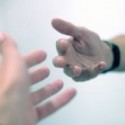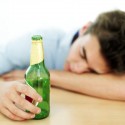How Treatment Centers Help Individuals Cope With Relapse
Unfortunately, relapse is a common occurrence after an addict completes treatment for any type of addiction whether it’s an alcohol addiction or a drug addiction. Luckily, even after relapse you can still get back on track with the help of a treatment center. Treatment centers can help you overcome the feelings of defeat that occur when you accidentally slip up and relapse after treatment. There’s no need to feel like you can’t go on, or like you have lost the battle. Here’s a look at how treatment centers help addicts to pick up the pieces after they have relapsed.
Relapse, It Hurts but Life Goes On
If you were never told that your recovery from addiction was going to be a journey you would never forget than you’ve been misinformed. Recovery is a long process that takes time, effort and is often plagued with some bumps and hurdles along the way. Relapse is just one of the many bumps you may hit along the recovery road but that’s ok. Life goes on after relapse so the best thing to do if you do happen to relapse after you have already completed a treatment program is to just immediately pick up the pieces and continue where you left off with your recovery process.
How Treatment Centers Help
Treatment centers are there to help you along the way—even when you have relapsed. Treatment centers provide guidance, support and care throughout the recovery process from the beginning when you first begin to detox through the point in which you exit treatment and then in some cases must come back for additional help. Treatment centers help you to cope with relapse in a number of ways and they also help to prevent relapse from occurring which is why it is vital to your successful addiction recovery that you work closely with your counselor or therapist at the treatment center even if you have made a mistake and relapsed.
Aftercare programs offered at treatment centers may include group meetings as well as one-on-one counseling sessions that are aimed at helping you to maintain your sobriety. If you relapse, talk with your counselor at the treatment center and let them know what has happened. Often times, the counselors can help you to determine where you went wrong and develop a plan for preventing a similar situation in the future. Additionally, if you let your peers know about your relapse they may also be able to provide you with some ideas or suggestions for preventing the same thing from happening again.
Seeking Help at a Treatment Center
Regardless of what has happened or how long you have been in recovery, if you relapse you need help. The most important thing to remember is that treatment centers are prepared to help you through the process of learning why you relapsed and preventing the situation from occurring again. It’s important that you talk with someone about your relapse because keeping it secret leaves you open to allowing the situation to happen again. Treatment centers have developed a number of relapse prevention programs as well as after care and follow up programs that are aimed at helping you to overcome your battle with addiction and cope with relapse when it happens.
Relapse happens to 9 out of 10 addicts. If they all gave up as a result of the relapse, then treatment would never work! Don’t let relapse throw you off, treatment centers can help you make a full recovery from addiction whether you relapse once, twice or even many times before you get it right!

